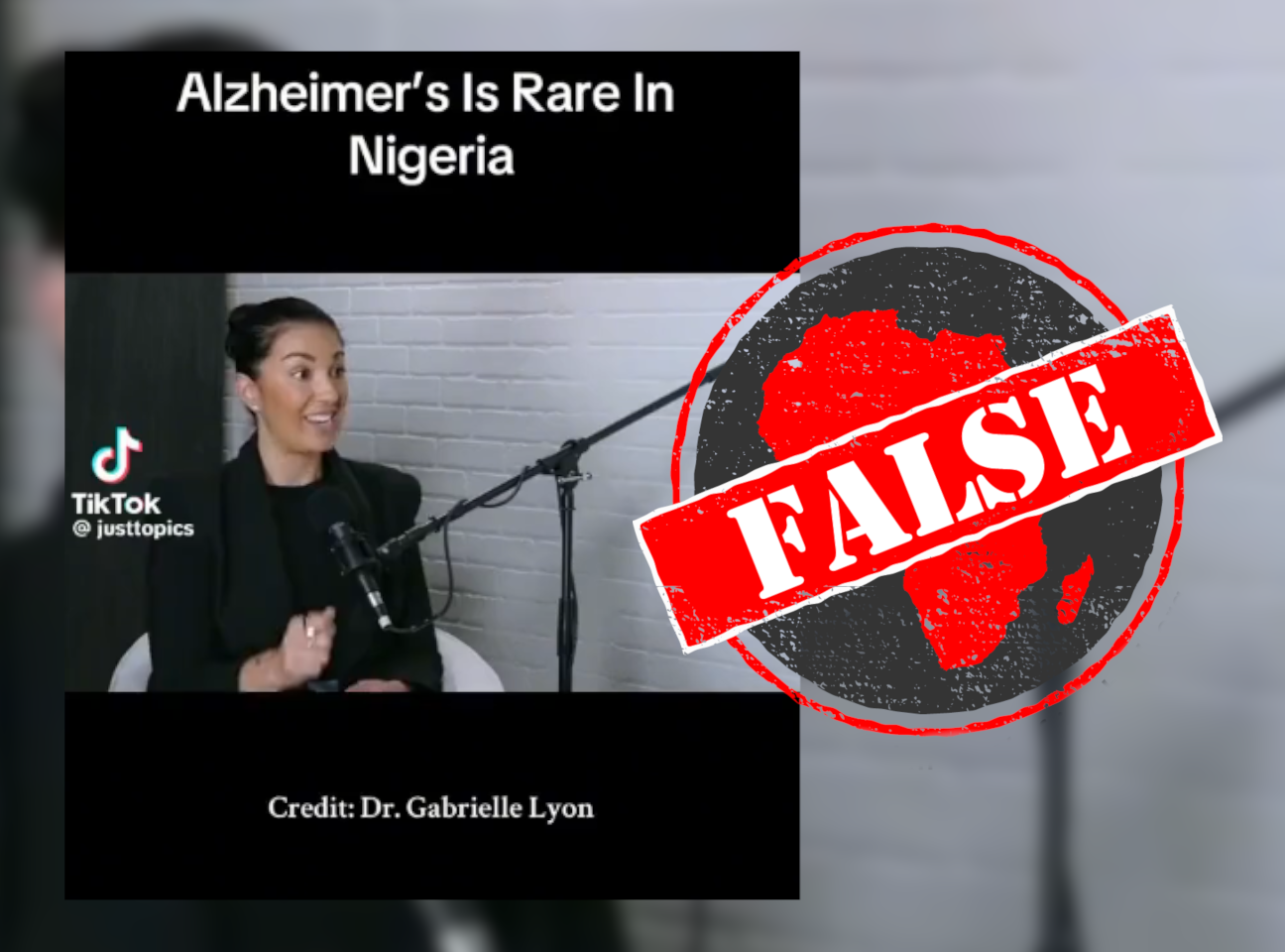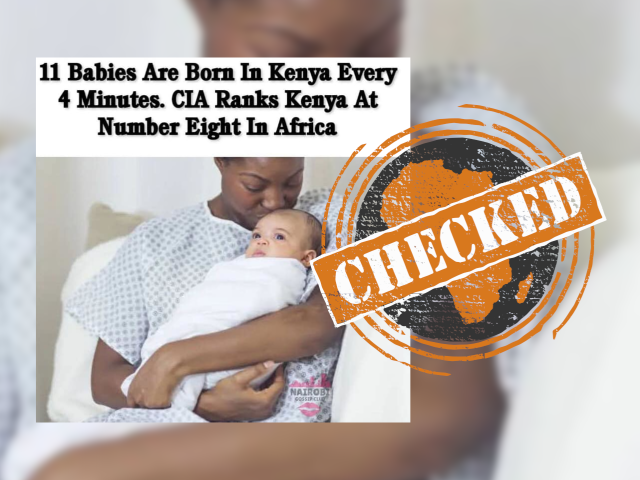IN SHORT: In a viral video, a woman claims that people in Nigeria don't get Alzheimer's because of the way they live. The available data does not support this claim.
“In Nigeria, they don’t get Alzheimer’s disease,” says a woman in a video that went viral on TikTok, Facebook and Instagram in November 2023.
“Why? Because they are not pulling the trigger. You see their lifestyle: they are walking, they are hunting. They are not in front of their computers all day. They are not stressed out and they eat food from the ground. They eat whole foods. They eat a lot of protein. They eat a lot of meat,” she says.
Some posts attribute the claim to Gabrielle Lyon, a medical doctor who, according to her website, founded something called the Institute for Muscle-Centric Medicine. Lyon appears to be based in the US, although neither her website nor her Facebook page indicate where in the US.
However, we found that the woman making the claim is in fact Louisa Nicola, who describes herself as a neurophysiologist and “brain coach”. She was being interviewed by Lyon, who appears later in the video. Lyon posted a different clip of the interview on Instagram on 11 April.
The video can be seen on Facebook here, here, here, here, here and here. It has also been the subject of articles shared on Facebook, mostly under the headline “Why Alzheimer’s disease is rare in Nigeria – US-based medical doctor”, including here, here and here.
But is it accurate that there are no people with Alzheimer’s disease in Nigeria?

Alzheimer’s is present in Nigeria
According to the World Health Organization, Alzheimer's disease is the most common form of dementia, accounting for between 60% and 70% of cases.
It is a brain disorder that slowly destroys memory and the ability to think and carry out the simplest of tasks. Symptoms usually appear in older people.
The disease is present in Nigeria, Ikenna Onwuekwe, a professor of clinical neurology and internal medicine at the University of Nigeria Nsukka, in south-east Nigeria, told Africa Check.
“We see cases of Alzheimer’s and we treat them. I don’t know what the numbers are in terms of prevalence in the country but it is not correct to say that Alzheimer’s disease is rare in Nigeria.”
A study published in 2019 used an epidemiological model to estimate that the number of dementia cases in Nigeria “increased by over 400% over a 20-year period, increasing from 63,512 in 1995 to 318,011 in 2015 among persons between ages 60 and above”. The majority were due to Alzheimer’s disease.
The study puts the prevalence of Alzheimer's disease among people aged 60 years and older in Nigeria at about 2%, significantly higher than the prevalence of other types of dementia combined.
The claim that people in Nigeria don’t get Alzheimer’s disease is false.
Republish our content for free
For publishers: what to do if your post is rated false
A fact-checker has rated your Facebook or Instagram post as “false”, “altered”, “partly false” or “missing context”. This could have serious consequences. What do you do?
Click on our guide for the steps you should follow.
Publishers guideAfrica Check teams up with Facebook
Africa Check is a partner in Meta's third-party fact-checking programme to help stop the spread of false information on social media.
The content we rate as “false” will be downgraded on Facebook and Instagram. This means fewer people will see it.
You can also help identify false information on Facebook. This guide explains how.





Add new comment